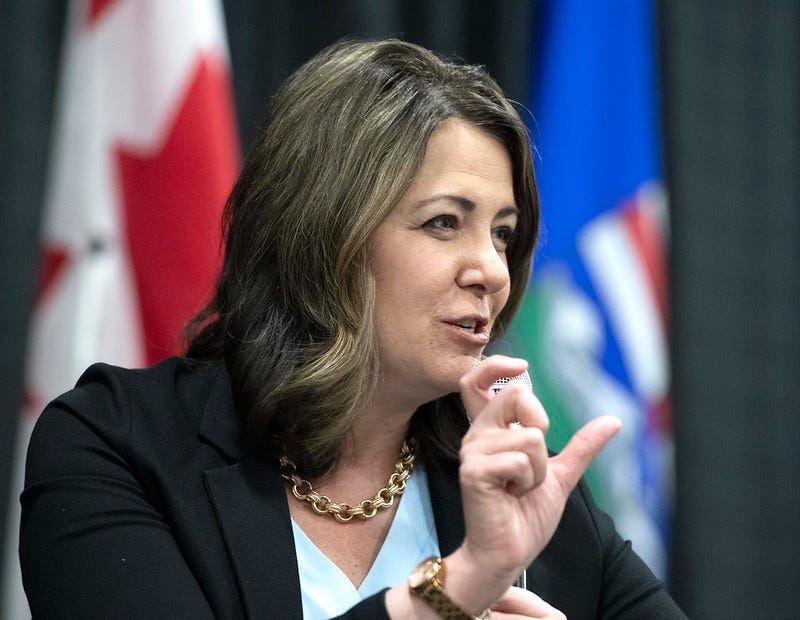The UCP's Dismal Economic Record
The party of Jason Kenney and Danielle Smith is losing at its own game.

It should come as no surprise to leaders of this space that the UCP’s economic record is not as advertised.
A new report from the Alberta Federation of Labour and Centre for Future Work shows that on every economic indicator, save for corporate profits, Alberta has lagged behind the rest of Canada since the UCP came to power in 2019 under former premier Jason Kenney.
The UCP’s economic policies have resulted in a major upward redistribution of wealth, doing precisely the opposite of what the neoliberal “trickle down” theory posits.
Jim Stanford, the economist who wrote the report, has spent years debunking the neoliberal dogma that low corporate taxes are inherently good for the economy, yet the argument persists.
Former premier Jason Kenney ushered in the current phase of Alberta’s historic low tax regime with his 2019 Job Creation Tax Cut Act, which slashed corporate taxes from 12% to 8% over a year.
As leader of the UCP, Danielle Smith has enthusiastically embraced this policy, attacking the NDP for its modest plan to increase corporate taxes to 11%, which leader Rachel Notley described as “a plan to take Alberta from having the lowest corporate taxes in the country to having the lowest corporate taxes in the country.”
It turns out the big UCP tax cut didn’t create any jobs, nor did it increase real wages, attract investment, or facilitate economic growth. But it did make a few people a lot of money, which is really what it’s all about.
Alberta’s employment growth was 4.21% from 2018 to 2022, which includes the NDP’s final year in power, compared to the Canadian average of 5.18%. By this measurement, Alberta ranks in the middle, behind P.E.I., Nova Scotia, Ontario and B.C., and below average.
But this figure is based solely on increases to the raw number of jobs. It doesn’t account for the proportion of the working age population. For that, we need to look at the change in employment rate, which in Alberta declined by 1.39% — the largest decrease by far — compared to the Canadian average of 0.3% growth.
In terms of wage growth, Alberta’s performance has been similarly dismal.
Wages increased 2.3% on average from 2018 to 2022, compared to the 3.9% national figure. This was again the worst in the country, which is all the more concerning when one factors in the fact that the price of consumer goods in Alberta is consistently the highest in Canada.
When we account for the price of goods, Alberta’s performance is even worse. Real wages declined 0.8% in Alberta, compared with a 0.7% increase Canada-wide.
This disparity was the product of the UCP government’s “deliberate policy … to suppress wage growth, in order to enhance profit margins for business,” Stanford wrote, citing freezing the minimum wage at $15 an hour, cutting it to $13 an hour for youth, freezing public sector wages and making it more difficult for workers to unionize.
While it’s not exactly shocking, especially for readers of this newsletter, that helping corporations maximize profits had a negative effect on wages and employment, Stanford said he “found it quite surprising” that it also reduced investment.
Neoliberal economics is rooted in the assumption that reducing the cost of doing business will, in the first place, increase corporate investment, which will in turn produce more jobs, higher wages and general economic growth.
But even by that metric, the UCP tax cut failed.


